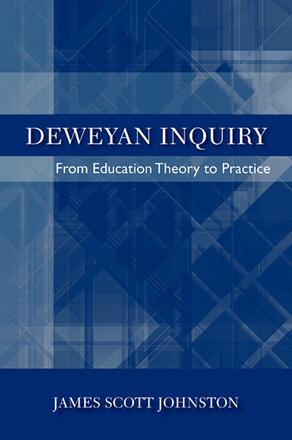
Deweyan Inquiry
From Education Theory to Practice
Alternative formats available from:
Presents John Dewey’s theory of inquiry and applies it to various areas of the primary, middle, and secondary school curricula.
Description
Deweyan Inquiry brings John Dewey's theory of inquiry together with educational theory and practice. James Scott Johnston uses Dewey's late masterpiece Logic: The Theory of Inquiry as a guide and looks at inquiry in science and science education, social science and social science education, art and art education, and embodiment and physical education. He argues that inquiry is self-correcting, and that this makes Deweyan inquiry particularly useful for the always-changing educational milieu.
James Scott Johnston is Assistant Professor of Philosophy and Education at Queen's University in Canada and the author of Inquiry and Education: John Dewey and the Quest for Democracy, also published by SUNY Press.
Reviews
"…Johnston sets an ambitious and important goal—applying Deweyan inquiry to the problem of teaching children in K–12. He relies primarily on Dewey's (1938) Logic: The Theory of Inquiry, a work seldom applied to educational settings. For this alone Johnston should be applauded. " — Education and Culture
"Johnston ably navigates the dense theory of Dewey and constructs thought-provoking examples useful to the practitioner. " — CHOICE